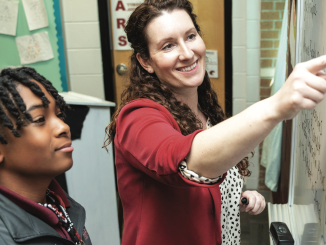
Parish agency offers hungry fish to residents with standing water
St. Charles Mosquito Control Inc. is busy getting the parish ready for another summer of those annoying pests, mosquitoes.An abundance of standing water in the parish puts St. Charles at risk of being one of the top mosquito-infested areas in the state. St. Charles Mosquito Control is stocking this standing water with a voracious fish called the Gambusia to combat the problem.
Also called the Mosquito Fish, this predator can be placed in any area that collects standing water where mosquitoes breed. Research shows that a large female is able to consume 225 larvae within a one-hour period and a pair of half-grown Gambusia are capable of consuming over 5000 larvae in 11 weeks.
“We have these fish available for residents that have standing water such as ponds, ditches andpools that are not in use. But as always, we encourage residents to adhere to the recommended precautions to reduce their mosquito populations,” said Steve Pavlovich of St. Charles Mosquito Control Inc.
Residents interested in obtaining these fish can do by stopping by the St. Charles Mosquito Control Inc. office at 238 Scarpio St. in Hahnville.
St. Charles Mosquito Control Inc. has the task of controlling mosquito populations in St. Charles Parish by using both truck and aerial spraying. Truck spraying usually runs everyday in peek mosquito season. Aerial spraying is done almost on a daily basis when mosquitoes are at their peak.
The program also uses gravid traps placed in different areas around the parish to capture mosquitoes and test them for the West Nile Virus and other forms of encephalitis.
In April, live chickens were put in place so that a sample of their blood can be tested for the West Nile Virus on a routine basis. The program also has the task of collecting dead cardinals, blue jays and crows found in the parish and test them for traces of the various forms of encephalitis.
In addition to the parish efforts, there are certain precautions that residents can take on their own to reduce their mosquito infestations.
Mosquitoes breed in water therefore residents should empty and change the water in bird baths, fountains, wading pools, rain barrels, and potted plant trays at least once a week, if not more often. Keep swimming pools treated and circulating and rain gutters unclogged. Another precaution is to make sure window and door screens are ‘bug tight’.




Be the first to comment